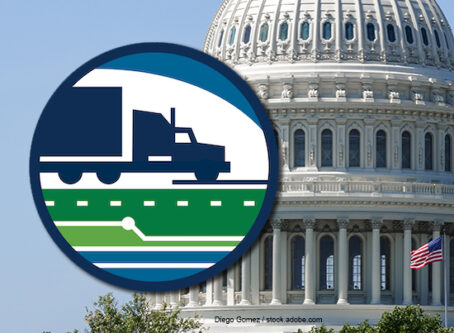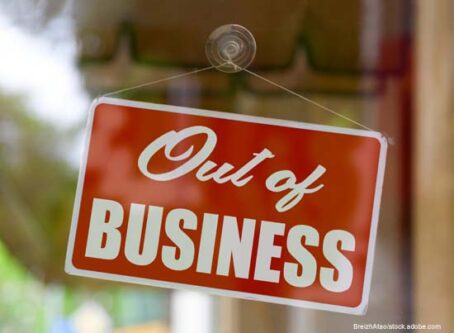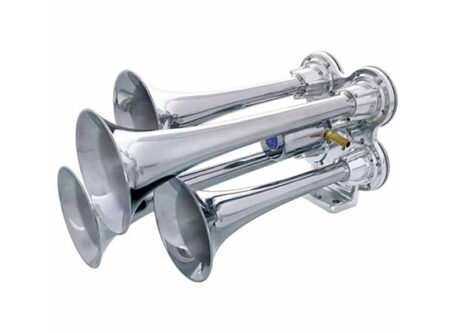Legislation in five states intended to deter highway protests
A continuing topic of debate at statehouses around the country is highway protests. Federal legislation also covers the topic.
The issue continues to draw headlines. In the past week, highway protests have blocked traffic in large cities including Chicago, Miami, New York City, San Francisco and Seattle.
There are at least a half-dozen states that have taken action in recent years to adopt rules to deter highway protests.
South Dakota and Tennessee were the first to act to address concerns about people blocking busy roadways. The South Dakota law set the punishment for standing on a highway to block traffic at one year in jail and/or a $2,000 fine. The Tennessee rule quadrupled the state’s possible fine for obstructing a roadway from $50 to $200.
Texas followed suit soon thereafter, enacting a rule that closely resembled the Tennessee revision. Additionally, Florida law states that protesters who “willfully obstruct the free, convenient and normal use of a public street, highway or road” will face prison time.
State lawmakers in Iowa and Oklahoma have since enacted rules to provide civil immunity in certain instances for drivers of vehicles who injure someone blocking traffic.
Supporters have said these efforts to keep protesters off busy roadways are commonsense ways to help ensure public safety. Critics, including the American Civil Liberties Union, view efforts to punish protesters as violations of the First Amendment.
Alaska
Alaska Gov. Mike Dunleavy is behind two bills that are touted to enhance public safety by imposing penalties for obstructing highways and airport runways.
HB386/SB255 would make obstructing a highway by dropping a substance on the highway a class C felony “if it creates a substantial risk of physical injury or interferes with an emergency response.” Offenders would face up to five years in prison and a $50,000 fine.
Simply blocking a roadway would be a class A misdemeanor. The punishment could result in up to one year behind bars and a fine up to $25,000.
At recent hearings, Alaska Attorney General Treg Taylor told the House and Senate Judiciary committees that unlawful obstruction presents a threat to public safety. The office highlighted emergency vehicles unable to respond when a “crucial roadway” is obstructed.
“Unlawful obstruction poses a threat to Alaska’s economy – business cannot operate normally,” an AG presentation reads.
Both bills have received initial committee consideration.
Arizona
Arizona Gov. Katie Hobbs has vetoed a bill that addressed concerns about highway protests.
State law classifies blocking traffic to create an “inconvenience or hazard” as a Class 2 misdemeanor punishable by up to four months behind bars and $750 in fines.
The Republican-led statehouse approved legislation that was intended to further deter the illegal activity.
SB1073 stated that a person who intentionally interferes with traffic on a highway, bridge or tunnel or any roadway leading to or from an airport holding at least 25 vehicles or people would face a Class 6 felony charge.
The felony charge could result in fines, probation or up to one year in prison.
Speaking recently on the Senate floor, Sen. John Kavanagh, R-Fountain Hills, said the bill was not about stopping protests; it was about stopping protests that obstruct others from getting to where they want to go.
“This bill is about people who intentionally get into traffic and stop cars for the purpose of stopping cars. … This is totally unacceptable.”
The Democratic governor said in her veto message it is important to recognize “the sanctity of constitutionally protected rights.”
“It is critical that we approach these matters with precision to avoid infringing on Arizonans’ freedoms,” Hobbs wrote.
California
One California state lawmaker wants to increase the punishment for blocking roadways as part of a protest.
Statute sets the fine for not giving the right-of-way to an emergency vehicle at up to $250. Repeat offenders face up to $500 fines.
Assemblywoman Kate Sanchez, R-Rancho Santa Margarita, said state law “does little to dissuade” the practice of blocking traffic.
To address the issue, Sanchez has introduced a bill that would double penalties for protesters who purposefully block traffic that prevents an emergency vehicle from passing.
As a result, willfully obstructing an emergency vehicle from passing would result in a fine up to $500. Repeat offenders would face up to $1,000 fines.
AB2742 is in the Assembly Transportation Committee.
These “protestors” aren’t just blocking traffic, they’r
e endangering the public and should be charged as such. That’s why I introduced a bill to give law enforcement more tools to crack down on this ridiculous behavior. #caleg https://t.co/6rViWufpfl
— Assemblywoman Kate Sanchez (@AsmKateSanchez) April 15, 2024
Louisiana
A Louisiana bill halfway through the statehouse covers illegal protests that block passage for multiple transportation modes.
Louisiana law states that blocking passage on a roadway, runway or waterway is punishable up to $250 and/or six months in jail.
House lawmakers voted 71-32 to advance a bill that would increase the fine to $750.
Rep. Mike Bayham, R-Chalmette, is behind the pursuit. Speaking on the House floor, he said, “you can’t just block an interstate.”
In an effort to discourage the act, HB127 would include punishment for organizers of protests that block a transportation mode.
Bayham addressed concerns about tamping down the rights of citizens.
“If you have a permitted protest or march that blocks a roadway, the police and emergency services have advanced notice, so they can work around it,” he said, adding that conversely, “If you have a sudden incident where you have obstruction, the police cannot plan around that, and that creates chaos and could potentially lead to loss of life.”
His account on X, formerly Twitter, includes multiple videos showing highway protests.
HB127 has moved to the Senate Judiciary Committee.
New York
In New York, an Assembly bill covers intentionally obstructing a public road, bridge, transportation facility or tunnel.
Sponsored by Assemblywoman Stacey Pheffer Amato, D-Queens, A8951 would increase the classification for such action from a Class A misdemeanor to a Class D felony.
The felony charge carries a maximum prison sentence of seven years.
The bill awaits consideration in the Assembly Codes Committee.
Federal legislation on highway protests
In addition to statehouse pursuits to curb highway protests, multiple federal bills on the topic have been offered for consideration.
One House resolution would make intentionally obstructing, delaying or affecting commerce by blocking a public road or highway a federal crime.
Offenders would face up to five years of imprisonment.
A Senate bill would make it a federal crime to “purposely obstruct, delay or affect commerce by blocking a public road or highway.” LL









